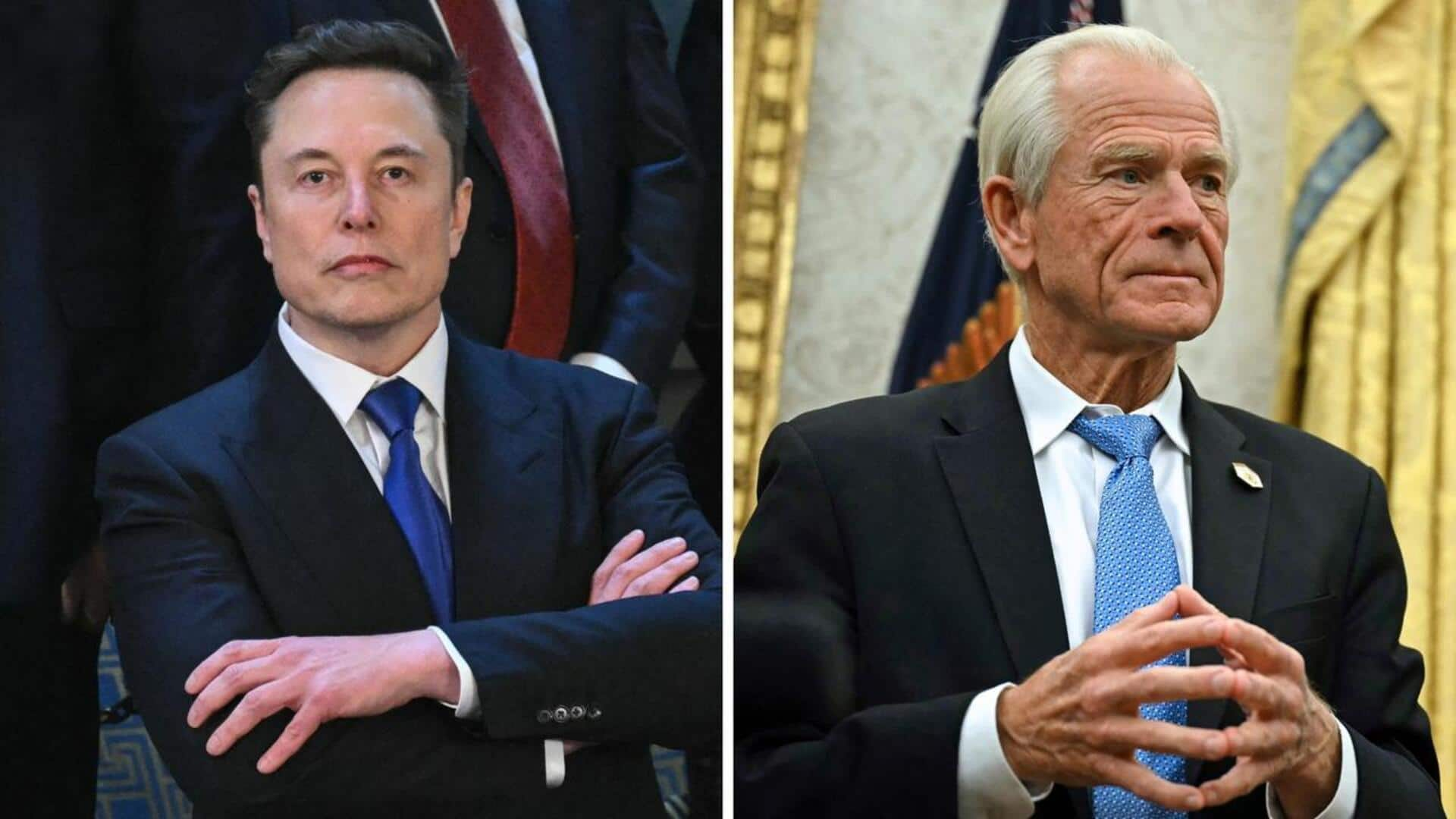
Musk responds as Trump aide gets fact-checked on anti-India post
What's the story
Elon Musk, the CEO of X (formerly Twitter), has defended his platform's Community Notes and Grok features. The defense comes after Peter Navarro, a trade advisor to Donald Trump, was fact-checked by these features for his claims about India's oil purchases from Russia. "On this platform, the people decide the narrative. You hear all sides of an argument. Community Notes corrects everyone, no exceptions. Notes data & code is public source. Grok provides further fact-checking," said Musk.
Controversy escalates
Navarro's accusations against X
Navarro has accused X of being manipulated by "Indian special interests" to distort domestic debate in the US. He questioned if X should allow posts where foreign interests disguise themselves as objective observers and interfere with US economics and politics. Despite Musk's defense, Navarro continued to attack X, calling a community note on the platform "crap" and accusing it of allowing propaganda.
Diplomatic tensions
Community note on Navarro's post
Navarro had previously accused India of profiteering from Russian oil and said India's tariffs cost "Americans's jobs." A community note added to Navarro's post clarified that "India's Russian oil purchases are for energy security, not just profit, & don't violate sanctions." The note also pointed out that while India has some tariffs, the US has a trade surplus with it in services.
Diplomatic rebuttal
India rejects Navarro's remarks as 'inaccurate and misleading'
India has rejected Navarro's remarks as "inaccurate and misleading." The diplomatic spat comes amid strained India-US ties after two decades of close cooperation. Despite sharp differences over agriculture and dairy, bilateral trade between India and the US stood at around $130 billion last year with projections of further growth. The US has also criticized India's growing energy ties with Moscow.
Trade dynamics
India defends Russian crude purchases
India has defended its Russian crude purchases as being dictated by national interest and market dynamics. After Western sanctions pushed Moscow out of traditional markets in 2022, India began buying discounted Russian crude. The shift was stark: Russia's share of India's oil imports surged from 1.7% in 2019‑20 to 35.1% in 2024‑25, making it the country's largest oil supplier.